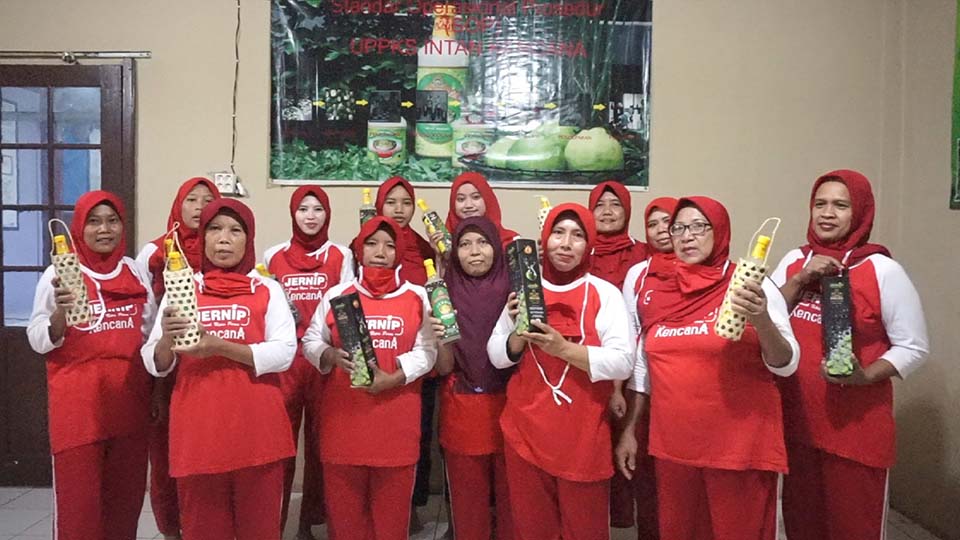Grub’s up: Unlocking the potential of insect-based food
With the global population set to surpass 10 billion before the end of the century, humanity faces a serious problem: we’re running out of food. Already the strain is beginning to show. Since 2019, world hunger has increased. Food insecurity is also on the rise, with nearly one in three people today lacking access to adequate food. Unless these issues are urgently addressed, it’s predicted that there simply won’t be enough food to feed everyone by 2050.

These worrying trends grabbed the attention of Costa Ricans Alejandro Ortega and Daniela Arias, who agreed that something must be done to fight against hunger, improve nutrition and promote food security. However, the pair knew that solving this problem couldn’t simply be a case of expanding current food production methods. The traditional food industry most of us depend on today, with its farms, fields and flatulent cows, is also one of the biggest drivers of climate change, habitat loss and pollution. According to the Food and Agriculture Organization, current food systems are also shockingly ineffcient, with a third of all food produce going to waste.
Insect-based food – a solution to help end world hunger

There’s a clear and pressing need for the food industry to find alternative sources of food that are easy to produce, nutritious to eat and can be grown sustainably. For Alejandro and Daniela, this big challenge has a small solution: insects. Despite their size, insects contain significant amounts of protein, fats, minerals and vitamins essential for healthy diets, and require just a fraction of the resources needed by conventional farm animals. If insect-based nutrients could be efficiently extracted, they could supply the food industry with a new range of safe and sustainable raw materials.
In January 2020, Alejandro and Daniela co-founded their company, Sibö B.V., to put this idea into practice. The name comes from the Costa Rican deity who, according to local tradition, taught people to use natural resources in a responsible and sustainable way. ‘And that’s exactly what we’re trying to accomplish within the food industry,’ explains Alejandro.

The first water-soluble insect-based protein
Building a business proved hard work. Even discounting the COVID-19 pandemic, which slammed the brakes on the global economy just months after Sibö B.V. was established, Alejandro and Daniela faced numerous hurdles getting the food industry to invest in their idea. Customers were squeamish about the idea of eating insects. The insects themselves proved difficult to breed and grow in the numbers needed. Most challenging, however, was the process of extracting nutrients. The first extracts Sibö B.V. produced weren’t soluble in water, which greatly limited their applications in food manufacturing.
After many months of experimentation and discussions with partners in the chemical industry, the fledgling company made a breakthrough: a unique method of separating and processing insect components that resulted in the world’s first water-soluble, insect-based protein. Knowing their innovation could be a game changer for the food industry, Alejandro and Daniela set out to protect their intellectual property (IP) to benefit from the advantage that IP confers.

The challenges of protecting intellectual property
Securing their IP presented its own challenges, however. ‘The only information we could find on IP was general, and it’s not always clear how to apply that to your particular company,’ explains Alejandro. Adding to their difficulties was Costa Rica’s lengthy process for securing IP. The two co-founders were warned that it would likely take five years for any patent applications to be reviewed, and even then, there was only a one-in-ten chance of it being accepted by the country’s stringent approval process.
Acting on advice from the Accelerate2030 program and the International Trade Centre, Alejandro and Daniela secured a Dutch startup visa in 2020, and by early 2021 had incorporated Sibö B.V. as a private limited company in the Netherlands. Moving their headquarters to The Hague not only allowed them to take advantage of the Netherland’s status as a global leader in insect-based food, but also its speedier process for protecting IP.
Sibö B.V.’s trade secrets for extracting insect protein and fats

exoskeletons into biodegradable packaging.
As of November 2021, Sibö B.V. is patenting its water-soluble protein extract as well as the proprietary technology that allows insect nutrients to be extracted and separated. The breakthrough processes for extracting protein and fats, meanwhile, are trade secrets – which, given the global presence of Sibö B.V.’s competitors, remains a simpler and cheaper form of protection for the company than patenting.
These trade secrets and patents join a growing range of IP supporting Sibö B.V.’s mission. The company’s insect-based ingredients are protected by a trademarked named, Entowise, in the Netherlands. Its subcompany, the Costa Rica Insect Company, is also trademarked. Sibö B.V.’s safe and sustainable method of growing insects, meanwhile – which overcomes the initial issues the company faced in this regard – is copyrighted in Costa Rica, where it forms the basis of the country’s first national insect farming program.

Intellectual property licensing for insect-based food
Sibö B.V.’s co-founders have big plans for the coming years. In addition to working with global food manufacturers, they are developing processes that turn insect components into valuable raw materials for other products, from pharmaceuticals to food preservatives. The company even has a trade secret for converting chitin, the tough material that makes up insect exoskeletons, into a biodegradable alternative to plastic packaging.
IP will remain at the heart of these developments. Indeed, Sibö B.V. is looking to shift its business model towards IP licensing. ‘The insect-based industry is growing so fast, and the knowledge we are producing can be used by many other companies,’ explains Alejandro. ‘So instead of competing with bigger companies, we want to collaborate with them – to share our technology and insights with others in order to increase our impact.’
Edible insects and the sustainable development goals

For Alejandro and Daniela, that impact remains unchanged since the day they founded Sibö B.V.: pragmatic, scientifically-grounded solutions to humanity’s most urgent needs. By producing safe, sustainable, nutritious food, their company is directly contributing towards SDGs 2 and 12, which aim to achieve zero hunger and sustainable consumption and production, respectively. The company’s practice of working with women and families in rural Costa Rica also supports SDG 1 (no poverty), 5 (gender equality) and 8 (decent work and economic growth). Together, these endeavors are creating a positive ripple effect throughout Sibö B.V.’s value chain, meaning that the company also contributes to global efforts to reverse climate change, habitat destruction and biodiversity loss.
‘From the beginning, the SDGs were a map showing us how to do business,’ says Alejandro. ‘To meet them, we need useful technology and meaningful solutions. And, for Sibö B.V., that wouldn’t have been possible if we didn’t understand our IP, or the possibilities and risks that come with it.’



